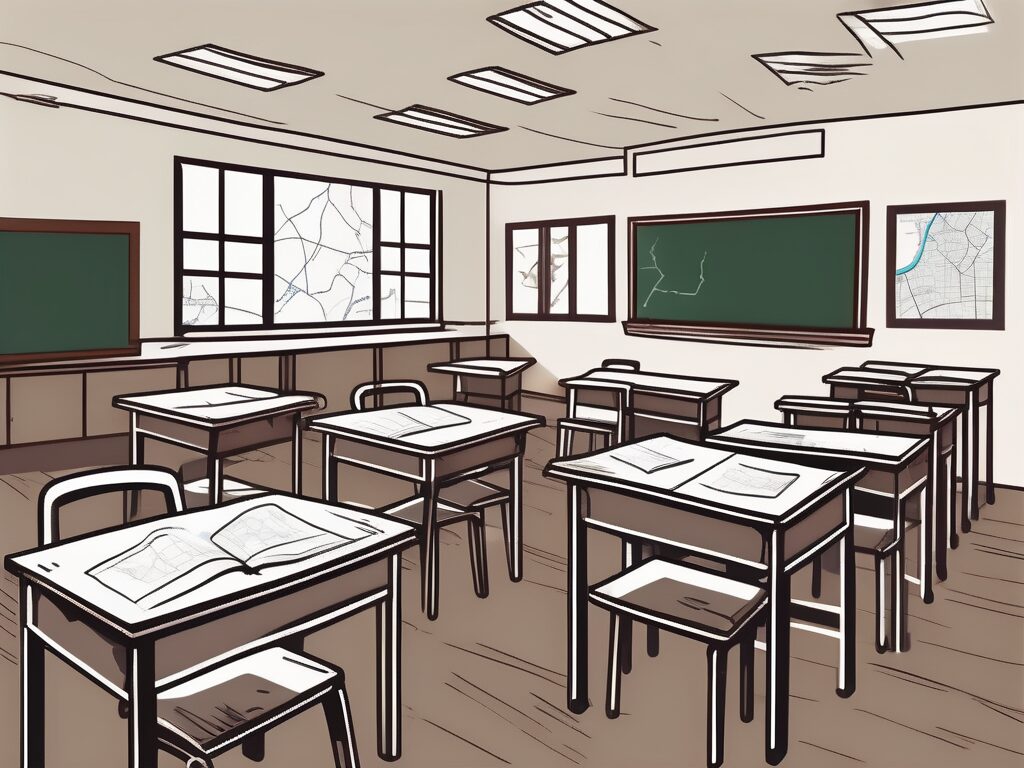Thailand, a country known for its rich cultural heritage and picturesque landscapes, has been grappling with numerous challenges in its education system. Despite making significant strides in improving literacy rates and access to education, the country still faces a myriad of issues that hinder its progress towards achieving an effective and efficient education system.
Quality of Education
The quality of education in Thailand has been a subject of concern for many years. According to the Programme for International Student Assessment (PISA), Thai students perform below the average in mathematics, science and reading. This is a clear indication that the quality of education is not up to par with international standards.
One of the reasons for this is the lack of qualified teachers. Despite the government’s efforts to improve teacher training, there is still a significant shortage of teachers, particularly in rural areas. This has led to overcrowded classrooms and a lack of individual attention for students, which in turn affects the quality of education.
Curriculum and Teaching Methods
The Thai education system is often criticised for its outdated curriculum and teaching methods. The focus is primarily on rote learning, where students are required to memorise information rather than understand it. This approach does not foster critical thinking or problem-solving skills, which are essential in the modern world.
Moreover, the curriculum is not aligned with the needs of the job market. There is a mismatch between what students learn in school and the skills required by employers. This leads to a high rate of unemployment among graduates, as they lack the necessary skills to secure a job.
Access to Education
While Thailand has made significant progress in increasing access to education, there are still disparities in terms of access to quality education. Children in rural areas and those from disadvantaged backgrounds often do not have the same educational opportunities as their urban counterparts.
Many schools in rural areas lack the necessary resources and infrastructure to provide quality education. Moreover, these schools often have a high student-teacher ratio, which further affects the quality of education. As a result, students in these areas are often left behind, widening the education gap in the country.
Language Barrier
Another challenge in Thailand’s education system is the language barrier. English is a compulsory subject in Thai schools, but the level of English proficiency among students is low. This is largely due to the lack of qualified English teachers and effective teaching methods.
The low level of English proficiency among students affects their ability to compete in the global job market. It also hinders their access to higher education, as many universities require a certain level of English proficiency for admission.
Education Funding
Despite the Thai government’s commitment to education, funding remains a major challenge. The government spends a significant portion of its budget on education, but the funds are not always allocated efficiently. This results in a lack of resources and infrastructure in many schools, particularly in rural areas.
Moreover, the high cost of education often puts it out of reach for many families, particularly those from disadvantaged backgrounds. This leads to high dropout rates and a low level of educational attainment among these groups.
Corruption and Mismanagement
Corruption and mismanagement of funds are also major challenges in Thailand’s education system. There have been numerous reports of funds being misused or embezzled, which further exacerbates the funding issue. This not only affects the quality of education, but also erodes public trust in the education system.
In conclusion, while Thailand has made significant progress in improving its education system, it still faces numerous challenges. These include the quality of education, access to education, and funding. Addressing these challenges will require concerted efforts from all stakeholders, including the government, educators, parents, and students.
Empower Your Teaching Career with IPGCE
As Thailand strives to overcome the challenges within its education system, educators have the opportunity to play a pivotal role in this transformation. IPGCE is dedicated to empowering teachers like you to reach new heights in your professional journey. By joining the UK’s #1 Teacher Training Course, you’ll enhance your qualifications, increase your chances for interviews and promotions, connect with a global network of educators, and gain a deeper understanding of international curricula. Embrace the chance to grow and make a significant impact in education. Join the UK’s #1 Teacher Training Course today and be the change you wish to see in the world of education.

